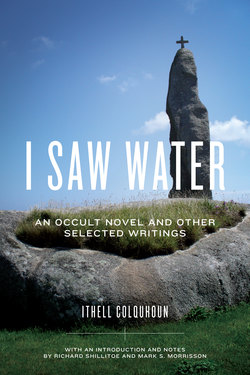I Saw Water

Реклама. ООО «ЛитРес», ИНН: 7719571260.
Оглавление
Ithell Colquhoun. I Saw Water
Отрывок из книги
I SAW WATER
Edited by Richard Shillitoe and Mark S. Morrisson
.....
Throughout her entire adult life, when she woke from dreaming sleep, it was Colquhoun’s practice to make an immediate written record of the dream and jot down other features that struck her as relevant, such as her mood on awakening. She would sometimes supplement these records with small sketches of objects or people she had encountered during the dream. As she worked on I Saw Water during the 1960s, she combed through her diaries, selected recent dreams as well as others extending back over some twenty years, “cut and pasted” them together, and linked them with consciously composed narrative passages (see fig. 8). She also provided the Breton setting for the events and added appropriate place and character names, as we have earlier discussed. Any changes that she made to the dream material itself were minimal.
Colquhoun assigned such great importance to her dreams that they provided the source material for virtually all of her imaginative prose, much of her poetry, and a number of her paintings. Although the extent to which she relied on dreams for her raw material was unusual, the very fact of doing so was not: dreams have inspired artists and writers for centuries. However, during her lifetime, a revolution in the understanding of dreams took place. It is a legitimate question, therefore, to ask what she understood herself to be doing when recording and making use of her dreams in this way. When she dreamed, did she suppose that she was delving into her personal past and that her dreams could help her understand her fears and insecurities? Did she perhaps imagine that she was tapping into shared ancestral memories? Did she think that she was receiving spiritual illumination, maybe opening up channels of communication between physical and incorporeal worlds? Did she believe that she was traveling into ethereal territories, using faculties that were unavailable to her in the waking state? It is unlikely that she would have made use of her dreams in the ways she did had she thought that they held no intrinsic meaning—if they were, say, merely a by-product of her brain cells performing routine maintenance tasks while she slept, or if they were caused by indigestion. In this section, we discuss the reasons why her dreams assumed such significance in her life.
.....